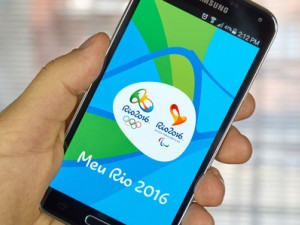
WiFi network security concerns have been added to the list of problems facing the 2016 Summer Olympics, officially known as the Games of the XXXI Olympiad, and commonly known as Rio 2016.
The upcoming major international multi-sport event in the tradition of the Olympic Games is due to take place in Rio de Janeiro, Brazil, from 5 to 21 August.
After seven years, almost $12 billion, a litany of problems and with only a few days to go, reports say Rio is still not ready to hold the biggest games on Earth. Rio will become the first South American city to host the Summer Olympics.
The lead-up to these games has been marked by controversies - including the corruption and instability of the country's federal government, as well as prominent health and safety concerns surrounding the Zika virus and significant pollution in the Guanabara Bay, as well as a doping scandal involving Russia which has affected the participation of its athletes.
Kaspersky Lab analysts and researchers mapped and assessed the security of the WiFi networks visitors will encounter. More than 4 500 single unique access points were discovered in areas near Olympic Games venues.
Analysts conducted research around popular areas, specifically the Brazilian Olympic Committee, the Olympic Park and the Maracana, Maracan~azinho and Engenh~ao stadiums, and mapped the available WiFi networks that visitors will encounter.
Running fast reconnaissance over a period of two days, the analysts discovered more than 4 500 single unique access points use the modern 802.11n-hardware that is ideal for working with multimedia since it offers speeds of up to 600Mbps.
When analysing the network security, analysts found 18% of WiFi networks tested were open - which means the data sent and received is not encryption protected. Additionally, it was discovered 7% use WPA-Personal, an algorithm considered obsolete and which can easily be compromised.
"This is especially concerning as users who connect to these networks may believe their information is protected, when in reality, these networks can be compromised, allowing criminals to carry out different types of attacks to manipulate the traffic and user data being exchanged through them," says Dmitry Bestuzhev, head of research and analysis at Kaspersky Lab Latin America.
In total, says Kaspersky Lab, 25% of all WiFi networks in areas where Olympic competitions are set to take place in Rio de Janeiro were found to be unsafe or configured with weak encryption protocols that may be easily compromised and manipulated by cyber criminals to steal users' personal and financial information.
"It is possible to use open WiFi networks and still navigate the Web safely," Bestuzhev notes. "However, the use of a VPN [virtual private network] is necessary. We recommend using this technology regardless of the Internet connection you use while travelling as the information going to/from your device will be encrypted. Even if someone is able to compromise the WiFi network, they won't be able to access your data without knowing the key to decrypt the message," he concludes.
Share